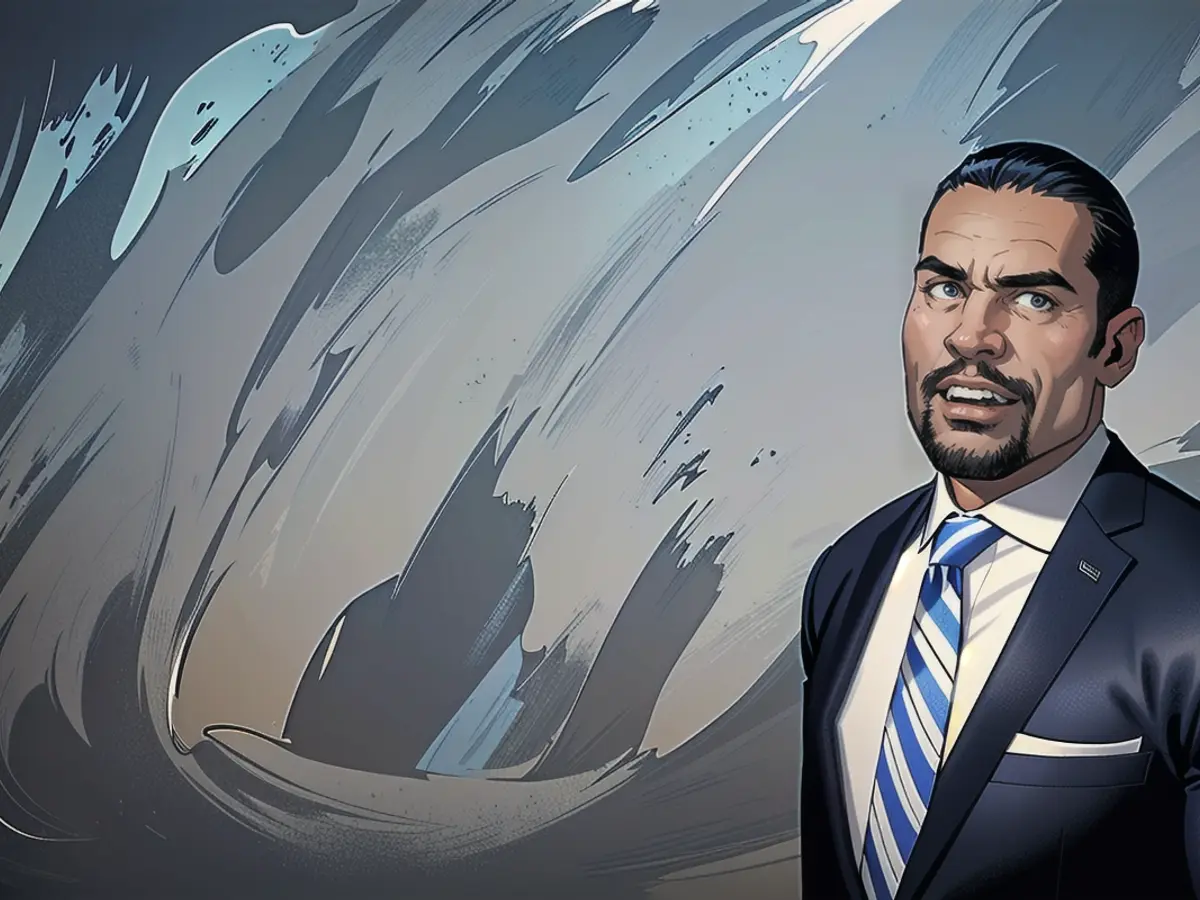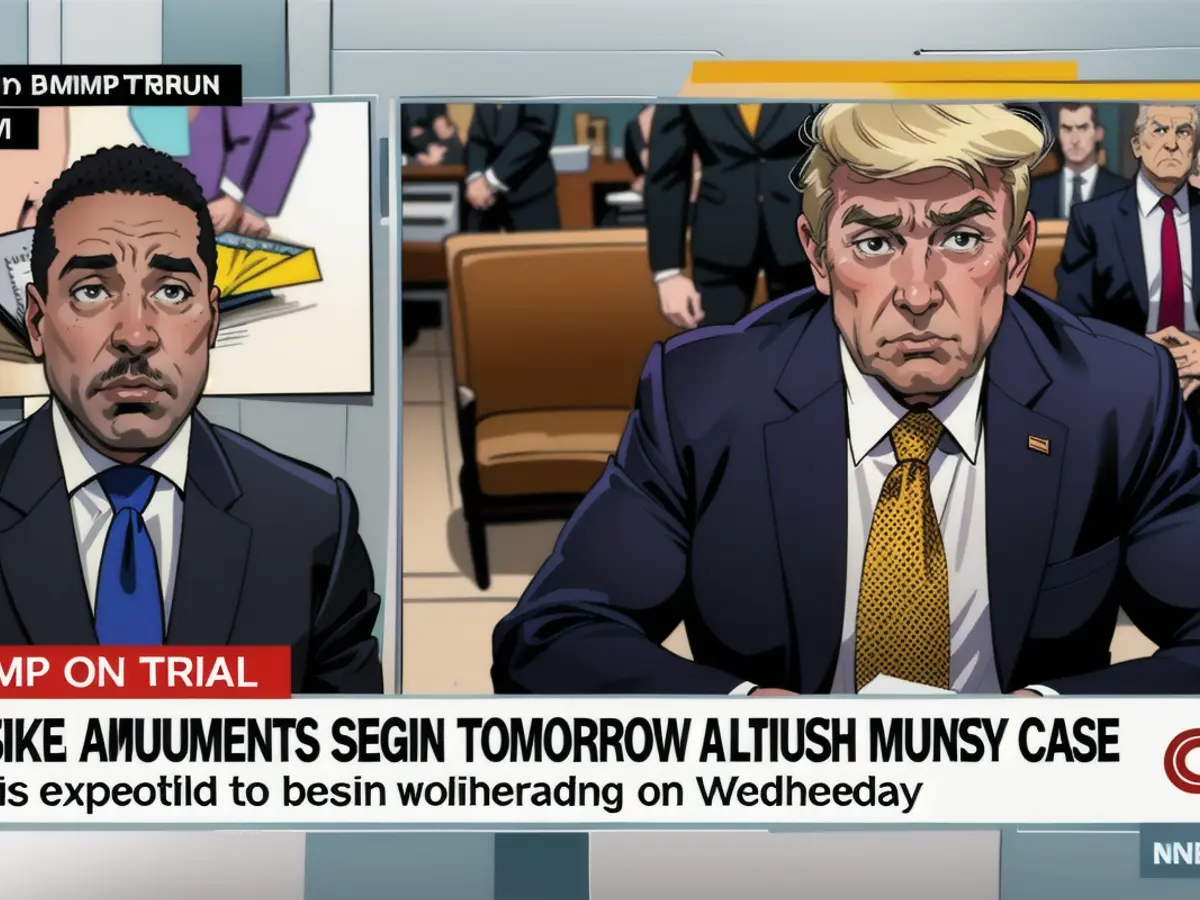Persuading a jury in a closing argument: The perspective of a lawyer representing Trump
Right after they've listened to both parties' final statements, the jury will make a decision about whether Trump is indeed accountable for any of the 34 charges included in the indictment submitted by District Attorney Alvin L. Bragg. The prosecution claims that Trump forged invoices and business findings and wrote checks with false details to reimburse his past attorney Michael Cohen. They also need to prove that Trump did this to hide some other crime. Even though the prosecution has not specified what this "other crime" might involve, they've hinted at a campaign finance infraction.
The authorities believe that Trump joined forces with others to pay off Stormy Daniels to keep her silence about an alleged relationship with the adult film actress. This allegedly happened so that voters wouldn't find out about this while Trump was vying for the presidency in 2016. If the jury concludes this, Trump would become a convicted felon and might be imprisoned for up to four years. Although there are multiple charges, any potential jail time would be served at the same time for each count, so the four years signifies his total potential sentencing.
But if Trump's defense attorneys are successful in their plea on Tuesday, there are two ways that Trump may avoid this outcome. The jury could find him not guilty based on the presence of doubt over his involvement in the claimed misdeeds. Alternatively, a mistrial could ensue if some jurors refuse to convict. This would result in a fresh trial for Trump in front of a whole new jury.
In the event of a mistrial, Trump would essentially be cleared. The reason is that there wouldn't be enough time to put him on trial once more before the upcoming election. If he's re-elected, the prosecutors would likely postpone the trial until after his presidency, per the Department of Justice's recommendations about not trying a sitting president. If he loses the election, it's doubtful that they'd have the motivation to try him again. After all, what would be the point?
First, the defense is predicted to make a big deal out of Trump's former fixer, Cohen, in their closing remarks. They will suggest that the entire case revolves around his word. Considering Cohen's history of dishonesty, the defense argues that all accusations should be dismissed. However, prosecutors will downplay the significance of Cohen, reasoning that nearly all other witness testimony - as well as emails, text messages, audio recordings, and various documents - confirms his claims.
Second, the defense team is anticipated to state that Trump didn't engage in any criminal activities. They'll highlight how silencing negative media stories and buying the rights to them are not only allowed but also legal. Not to mention, having an interest in winning an election and shielding yourself from sensitive information is perfectly normal.
Concerning Stormy Daniels, the defense will challenge the affair (which Trump firmly denies), while emphasizing that Donald Trump may not have recognized or given permission for the payment to Daniels. They will assert that Cohen acted on his own and unbeknownst to Trump. And while the specifics of her story might be provocative and intriguing, her rendezvous with Trump, if believed by the jury, would still not be illegal.
Regarding the payment of invoices and reimbursing Cohen for his expenses, this in itself is not unlawful. Yes, Trump wrote out checks, which is completely reasonable, whether he used a Sharpie pen or not.
As for ledgers and invoices documenting these payments, Trump has no involvement in them. He's not the bookkeeper or financial officer; he's merely the owner of the organization. Plus, it's worth noting he was literally running the world during this time, so he was preoccupied with more important tasks, like managing global issues. His financial staff never indicated he had instructed them to distort anything.
Finally, the defense will portray the only witness directly accusing Trump, Cohen, as someone with a personal vendetta. A disgraced lawyer and convicted felon, Cohen has a track record of lying to Congress, lying to banks, lying to business partners, and even deceptively withholding information from his own spouse. On top of that, he's taken in thousands of dollars from the Trump Organization and earned millions by demonizing Trump.
Defenders will definitely emphasize what they view as the greatest falsehood: Cohen's account of a 96-second call wherein he informed Trump regarding the Daniels bargain during a conversation with Trump's bodyguard. Cohen alleges Trump was with the bodyguard at that time, and somehow passed the phone to him. However, issues arose when it was brought to their attention that in the duration leading up to this call, Cohen communicated repeatedly with the bodyguard, expressing concerns about a 14-year-old's harassment. There were no references to Daniels whatsoever in these texts.
Furthermore, the defense will argue that it's not permissible to convict an individual solely based on distaste for their political affiliation - a notion fundamentally contradictory to our entire legal system. In addition, they'll assert that there's another hidden crime that the prosecution neglected to explore. Why didn't they delve deeper into this mystery? Not guilty.
However, the prosecution disagrees. They'll state that this trial centers on a conspiracy and a cover-up, and their proof clearly affirms this.
The defense endeavors to portray the trial as installing all its weight on Cohen's assertions. But you must understand that this doesn't hold true. Almost every witness affirmed the accuracy of Cohen's statements.
Consider the plausibility of Cohen's reasons for coming forward. The revelation of the "Access Hollywood" tape, where Trump bragged about groping women on a wiretapped conversation, left him susceptible to additional turmoil. You listened to Hope Hicks, a campaign communications director, discuss the ongoing challenges the campaign was facing and their attempts to stage damage control. You also heard her explain how Trump is meticulous and informed about everything around him. Additionally, Cohen is renowned for not offering financial assistance gratuitously.
But simultaneously, there's the agreement involving Playboy model Karen McDougal. You were privy to a recorded conversation between Cohen and her lawyer, which highlights their deliberation to pay her to keep their affair under wraps. By extrapolation, we can reasonably conclude that Trump was heavily invested in this matter. Furthermore, both Daniels and McDougal were under Davidson's legal representation.
Surprisingly, the defense wants you to presume that all the substantial evidence against Trump hinges on Cohen. This is absurd. Also, let's not forget the audio where Cohen discusses Trump lamenting the Daniels payment, even though others advocated its necessity.
Furthermore, consider the evidence that speaks for Trump's awareness of the Daniels payoff: his attempt to delay it until the election's fallout had subsided. He even stated, "If I win, it will have no significance because I'll be president, and if I lose, nobody will care."
There's also Cohen's White House meeting before these reimbursements were processed. The purpose of this gathering wasn't a Cohen appointment, and when Cohen started receiving these "retainer" payments, Trump began using his own Sharpie pen to sign the checks. Oddly enough, Cohen was not performing any legal work for Trump.
The checks would need Trump's approval to be issued, a process that involved manipulating the record-keeping to premise the payments as "legal fees." It's contrastingly unusual that they employed an elaborate scheme to simply pay a lawyer.
The defense would have you believe that the renowned negotiator behind "The Art of the Deal" was clueless about the payments, which were technically "retainer" fees. However, his involvement goes beyond just knowing about what he was doing: he also directed how the accounting records should be modified. While he may not have been the one to craft the fraudulent ledgers and invoices, he undeniably participated in the conspiracy. What better testament than his own signature?
The defense would have you believe that he was too preoccupied with multitasking to grasp the real purpose of the payments. Not likely. They also champion his knowledge of how to bypass the law in a presidential election. The prosecution will assert that Trump's liability across all charges is unquestionable based on this available evidence.
This article was computed with GPT-3, an artificial intelligence technology.
The defense will invest a lot of effort in belittling Cohen, who asserts that he spoke with Trump regarding the Daniels maneuver "over twenty times" in October 2016. If the jury dismisses Cohen's testimony, the prosecutors could encounter issues proving Trump's culpability. However, if the prosecutors manage to downplay Cohen's importance and instead focus on all the other evidence indicating that Trump not only knew about the Daniels contract but also had a motive and rationale to ensure the agreement was sealed, they may win the case. This is because it would become apparent that Trump played a role in altering records, as well as his reasons for doing so.
The final judgment, however, rests in the hands of the jury. As they deliberate, they'll face a multitude of factors to weigh.

Read also:
- This will change in December
- Dikes withstand water masses so far - Scholz holds out the prospect of help
- Fireworks and parties ring in 2024 - turn of the year overshadowed by conflicts
- Attacks on ships in the Red Sea: shipping companies avoid important trade route
During the closing arguments, the defense team may argue that the entire case hinges on Michael Cohen's testimony, implying that doubts in his credibility could lead to doubts about the charges against Trump. The jury, however, must consider the wealth of evidence beyond Cohen's testimony, such as emails, texts, audio recordings, and other documents, in forming their opinions about Trump's involvement in the alleged misdeeds.
Source: edition.cnn.com







